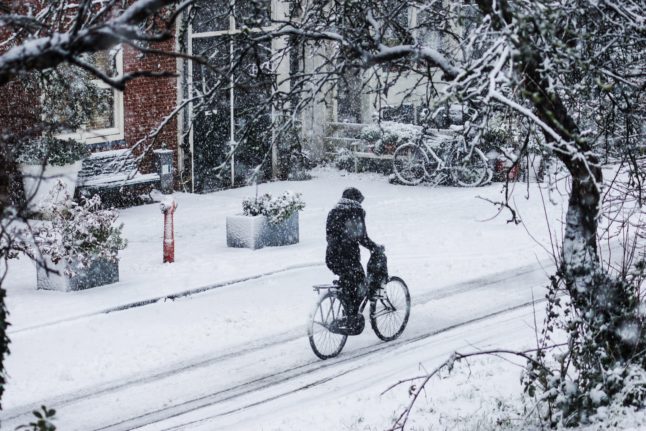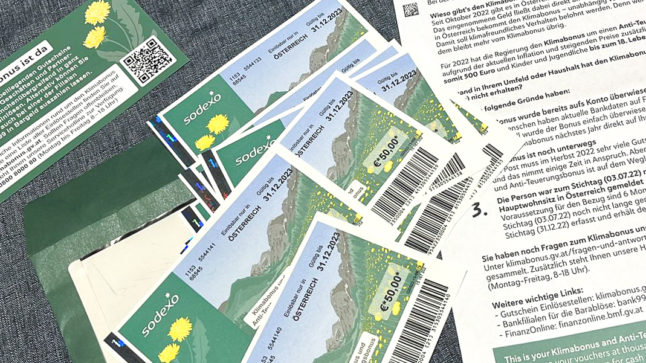Austria’s federal government on Monday launched its “Mission 11” campaign intending to help the country’s residents reduce energy consumption by eleven percent.
“Today we are launching Mission 11 and we hope that as many people as possible will join us”, Climate Protection Minister Leonore Gewessler (Greens) said in a press conference on Monday. She added that “small changes in our behaviour” could help the country save energy amid the global energy crisis.
The government announced several tips to keep houses warmer, save energy, and improve efficiency.
✔️ Gemeinsam sparen wir 11 % Energie! #Energiesparen #Energiewende https://t.co/KSZKNpcC3p 👈
Alle ℹ️ zur Kampagne: https://t.co/LUxHZO018D pic.twitter.com/vmDsHjZfkY
— Klimaschutzministerium (@BMKlimaschutz) September 12, 2022
Gewessler also gave an update on gas storage in Austria, saying that domestic gas storage tanks are currently 70.69 percent full. She added that by November 1st, the tanks should be at about 80 percent full. According to the federal government, there should be no issue with the gas supply, and any missing quantities from Russia could be replaced by buying from other sellers.
In addition to the energy saving campaign, the government is working on medium- and longer-term measures to save energy, including the Energy Efficiency Act.
A package of binding measures is also currently being developed in the Ministry of Climate, but this still needs to be discussed in the coalition. The minister didn’t give any further details.
However, she had already indicated to Austrian media that there would be binding rules. For example, the room temperature in public buildings should be limited to 19C. This would not apply to schools and hospitals but to municipal offices and ministries.
There is also a planned ban on advertising lighting after 10 p.m. A controversial end to heating islands in gastronomy (the outdoor electric heaters in bars and restaurants) is also being studied.
Here are the government tips for private citizens and their households.
Tips to keep your home warmer
Among the main measures, the government recommended reducing the heating temperature by two degrees Celsius over the entire heating period. This would reduce the heating bill by twelve percent annually, Gewessler said.
Additionally, they suggested people keep their radiators uncovered, without clutter, to help the spread of warm air, using sealing tapes against leaky windows, airing out rooms three times of day (instead of keeping windows slightly open), closing doors to unheated rooms, using programmable thermostats to keep heating on only when people are at home and raising humidity with the help of plants.
READ ALSO: Reader question: Should I buy an electric heater in Austria this winter?
Tips to save up on energy and heating
Gewessler said that the average person in Austria takes a five-minute shower, but if people cut this time by one minute, they’d get a 20 percent savings in energy.
The Climate Ministry also recommended people take showers instead of baths, use a low-flow shower head, and keep temperatures lower to save up on energy.
The government also said that for short periods, such as when you need to brush your teeth or wash your hands, cold water should be used.
READ ALSO: How could Austria’s new electricity price brake benefit you?
Tips to save up on electricity
According to the government, a typical household has from ten to 20 appliances that are permanently on standby, which means that even when they are off, they are still consuming electricity. Disconnecting them could help residents save up to ten percent of their energy.
Additionally, the Climate Ministry said any homes still using classic incandescent lamps should make the switch to LED lamps. Finally, when doing laundry, always ensure that there is a full load and that you are using the “eco” or “energy-saving” settings.
There are several tips regarding a house refrigerator or freezer. For example, the Climate Ministry said that regularly defrosting a freezer can help save up on electricity and that a filled refrigerator consumes less energy than an empty one.
It’s also important to check your appliances for any defective sealing. The placing of the refrigerator is also important, as it should not be near a heat source.
READ ALSO: From inflation to Covid: What to expect from Austria’s winter season
Tips on saving fuel
Of course, the federal government recommended people switch to public transport or cycling. Switching to public transportation can save 94 percent of energy compared to using a diesel or petrol car.
If you need to drive, do it slowly, as it saves energy, the government said. They suggested a voluntary speed limit of 100km/h on the Autobahn that could save up to 24 percent fuel.
Another tip is to carpool whenever possible, especially when going to work, and to check your tyre pressure.
READ ALSO: ‘We’re under massive pressure’: Austria’s train operator ÖBB to increase prices



 Please whitelist us to continue reading.
Please whitelist us to continue reading.
Member comments